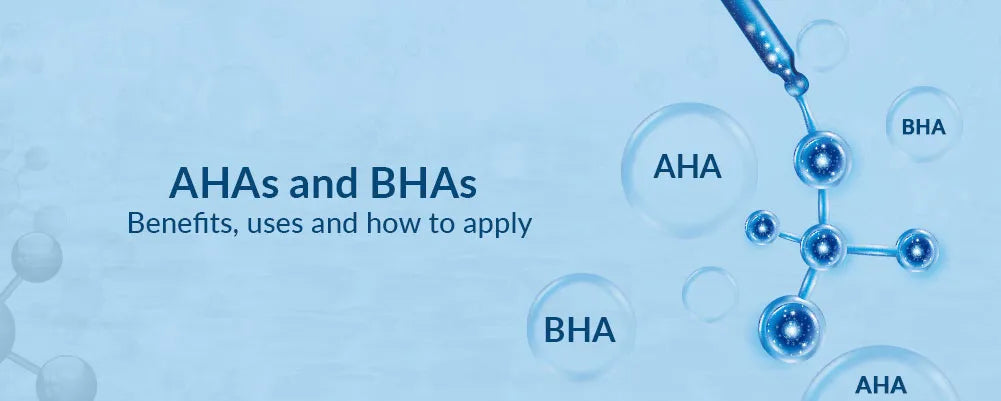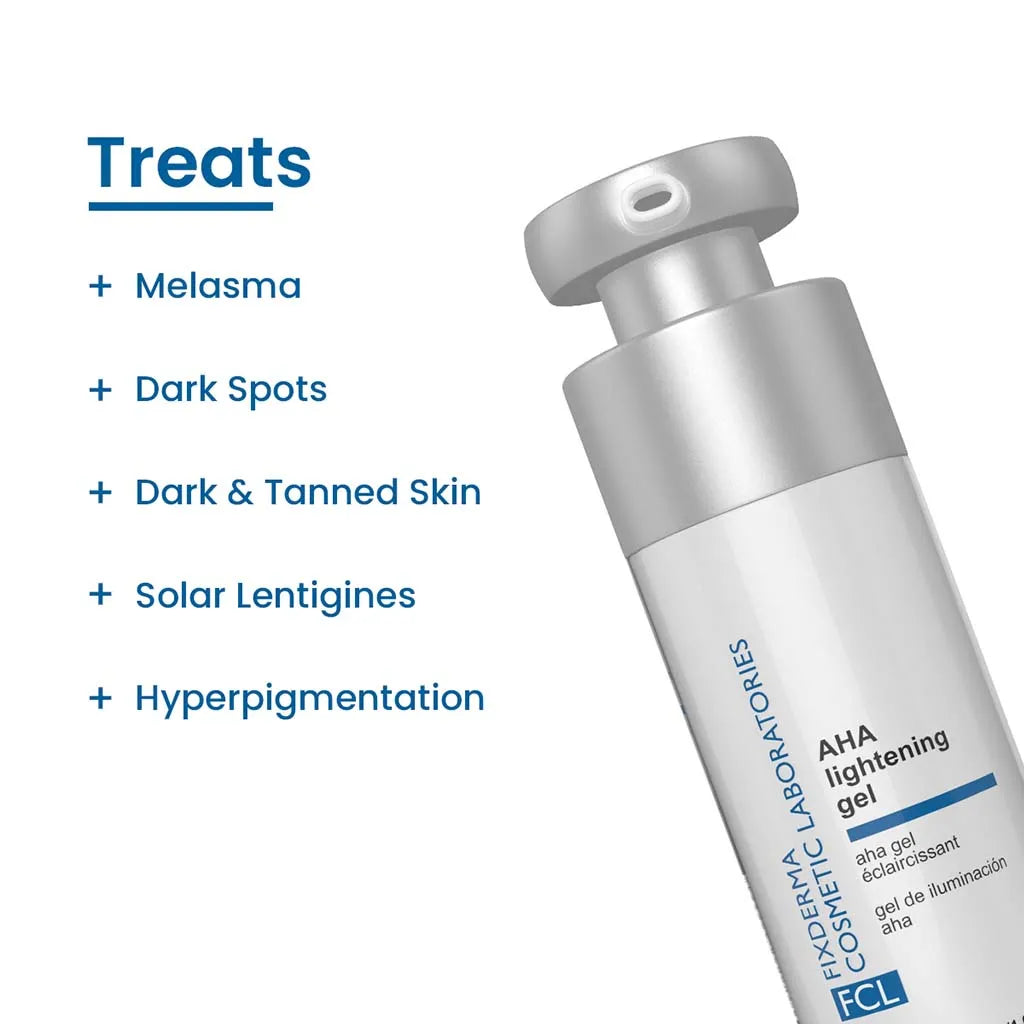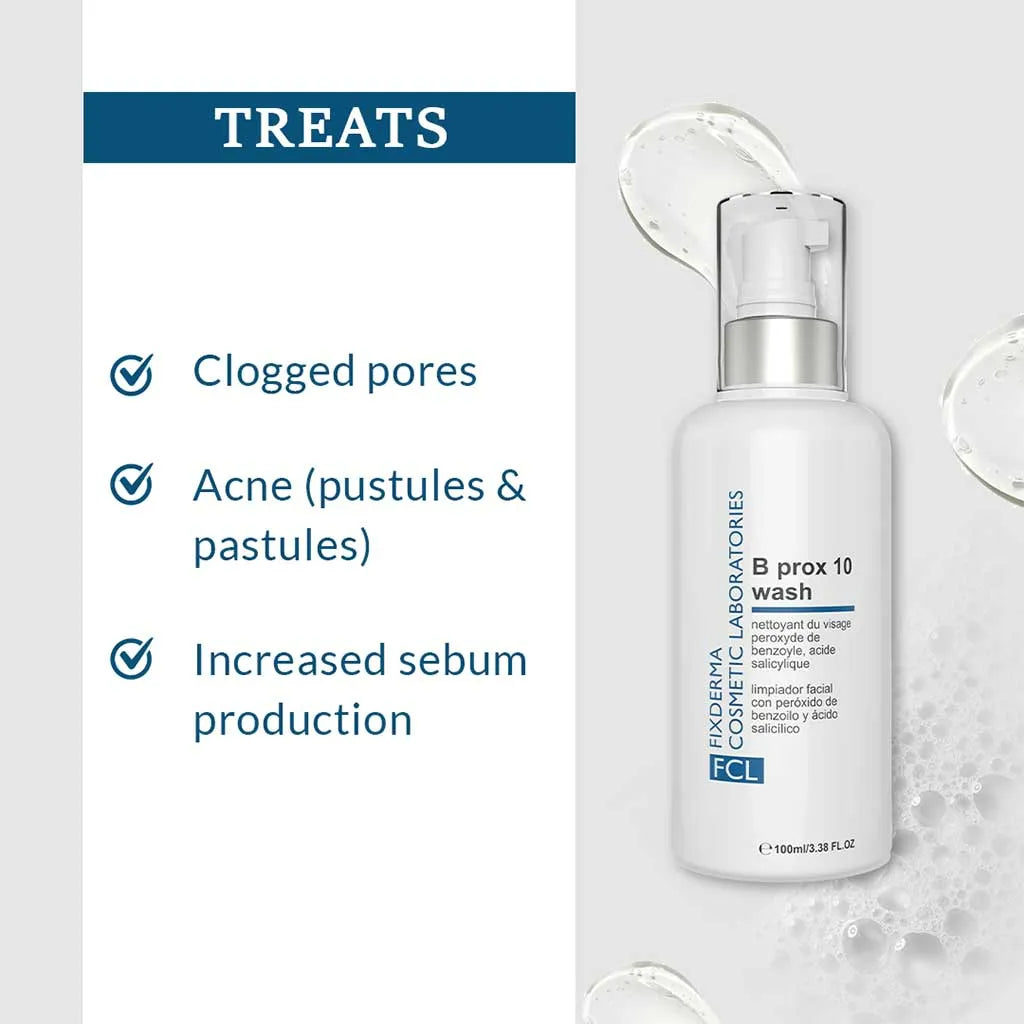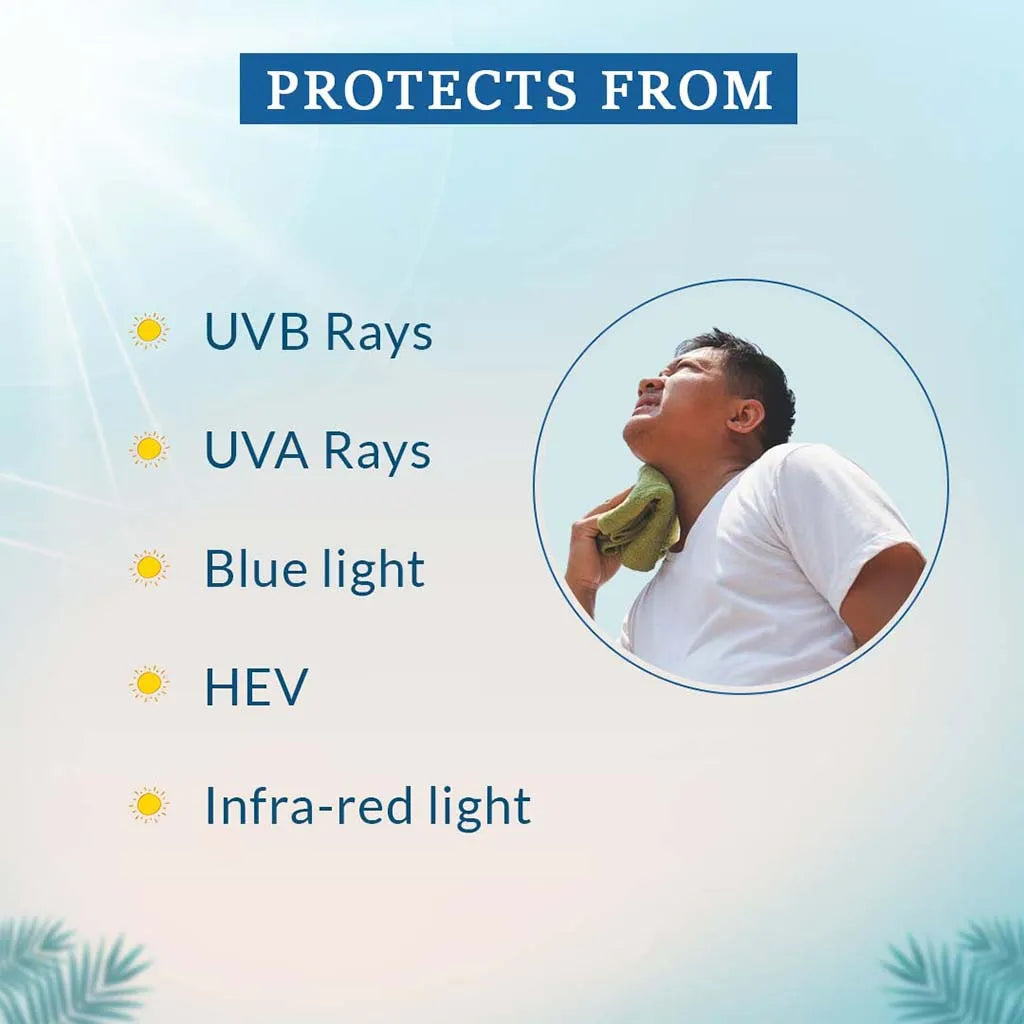
AHAs and BHAs 101
By: Sandip KumarWhat are AHAs?
AHA stands for Alpha Hydroxy Acids. These acids are obtained from natural water substances and help exfoliate the skin. AHAs dissolve the bonds that keep dead skin cells intact and help improve the skin’s moisture content. It is a perfect active to revive mature skin, but it works only on the topmost layer of the skin.
Some examples of AHAs are glycolic acid, lactic acid, mandelic acid, and citric acid.
AHAs are more suitable for people with sun-damaged and dry skin. It is mandatory to apply sunscreen in your AM routine when you are using AHAs on your skin.
AHAs are safe to use for longer periods, and they are very effective on the skin.
What are the benefits of using AHA?
- Removes dead skin cells
- Reduces uneven skin tone
- Promotes radiance
- Reduces fine lines
- Smoothens skin texture
What are BHAs?
BHA stands for Beta Hydroxy Acids. These oil-soluble acids pass through the oil that clogs your pores and assist with stabilizing the pore lines.
It has non-irritating, anti-bacterial and pore cleaning properties. It is a great acid to be used on blackheads and whiteheads.
The most common example of BHAs is salicylic acid.
BHAs are more suitable for people with oily and acne-prone skin. As these acids are not exfoliant, they do not make your skin sensitive to sunlight, but still, it is recommended to apply sunscreen regularly.
What are the benefits of BHA?
- Reduces blackheads
- Prevents pore clogging
- Dissolves whiteheads
- Reduces acne
- Reduces sebum production
How often should we use AHAs and BHAs on our skin?
AHAs should be used on alternate days to avoid over-exfoliation on the skin. BHAs can be used every day to help control oil production and prevent uncomfortable spots from forming.
Whether it's AHAs or BHAs, both acids increase sensitivity to sunlight. Therefore, one should never miss applying sunscreen in the daytime routine to protect the skin from harmful UV rays.
How to use Alpha Hydroxy Acids?
The impact of every AHA differs slightly. The concentration of the AHA should be between 10% and 15%. If you include a new product in your skincare routine, apply it on alternate days until your skin becomes accustomed to it. This will also reduce the probability of side effects like inflammation.
No matter which AHA you use, the exfoliating effects of AHA make your skin vulnerable to the sun. And applying sunscreen helps avoid age spots, burns and risk of skin cancer.
How to use Beta Hydroxy Acids?
BHAs can be used every day. Initially, you might have to use it only a couple of times to get your skin accustomed to it. BHAs do not make your skin as sensitive as AHAs do, but you should still use sunscreen every day. This will help you keep away from more sun damage.
FCL’S Recommendation
AHA
AHA Lightening Gel HQ - A fast-acting skin lightening gel with clinically proven ingredients to reduce dark spots.
Penta Peel Pads - An innovative chemical peel treatment at home.
AHA Lotion 15 - A creamy yet lightweight exfoliator gently removes dead skin cells and provides smooth, younger-looking skin.
BHA
Alpha Beta Acne Gel - A pore-refining facial gel for the treatment of acne. It helps to exfoliate dead skin cells and unclogs the skin pores.
Alpha Beta Acne Cleanser - Gentle, soap-free gel cleanser quickly dissolves excess oil, skin impurities, and makeup that can clog skin pores.
B Prox 10 wash - A therapeutic facial wash formulated to overcome acne breakouts.
Sunscreen
Chemfree SPF 30 - A physical sunscreen which offers broad spectrum protection against both UVA & UVB rays.
Silicone SPF 40 Gel - AN ultra-light sunscreen gel that provides superior sun protection against various harmful lights including UVA, UVB, Blue light, Infra-Red and High Energy Visible Light.
Lightweight SPF 80 Lotion - It’s a lightweight, non-greasy broad spectrum SPF 80 lotion that increases skin defence and resistance to UV light, blue light, infra-red light and HEV.
Read More - Dermatologist - approved best ways to treat Hyperpigmentation



